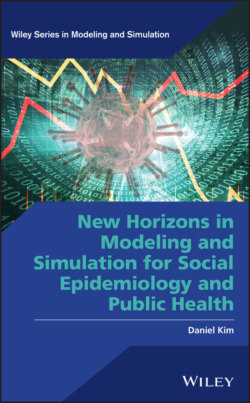Читать книгу New Horizons in Modeling and Simulation for Social Epidemiology and Public Health - Daniel Kim - Страница 25
Microsimulation Models
ОглавлениеMicrosimulation models (MSM) enable simulations of policies on samples of economic agents (individual, households, and firms) at the individual level (Bourguignon and Spadaro 2006). These simulations allow for the projection of the consequences of modifying economic conditions for each individual agent in the sample. Through such projections, we can estimate the overall aggregate impacts of a policy as well as the distributional consequences of the policy in terms of “winners” and “losers.” These could be population subgroups as defined by social axes including age, gender, race/ethnicity, and socioeconomic status. Such policies may be expensive and not readily feasible to undertake in the real world. For example, changing the income tax structure can alter what absolute income individuals in a population receive and influence the distribution of income (i.e. levels of income inequality) within the population. Through tax microsimulation, we can hence project the absolute and relative income impacts without actually implementing these changes in the real world. MSM can thus offer a convenient and inexpensive means to estimate the overall population impacts of social policies.
